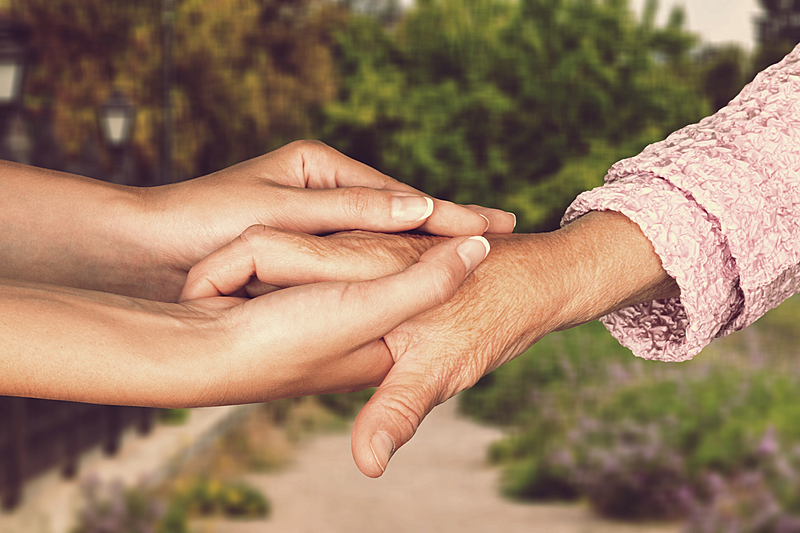
“You yourself, as much as anybody in the entire universe, deserves your love and affection.” – Buddha
Caregivers of individuals with dementia witness suffering of not just the individual but their friends and family as well. Being with individuals who experience agitation, frustration, anxiety, and fear can be extremely difficult. Providers may develop a sense of not being able to do enough and suffer themselves. Recognizing the interdependence of individuals can be one way of moving forward and continuing to connect and stay in relationships, thereby diminishing suffering.
Adopting an attitude of acceptance, openness, patience, kindness, and non-reactivity can be crucial. As strong emotions may come up, acknowledge and work with them instead of reacting. Be gentle with yourself so as to be gentle with others. You can set an intention of connecting to the individual with dementia. Sit with them when they are happy, sit with them when they are sad. You can’t fix it. Surrender to it and stay with the Buddha as he is now. As one Buddhist chaplain wrote, “The people in our care facilities are our mothers and fathers, our grandmothers and grandfathers. They are us. In healing them we heal ourselves.” (MacDonald, 2011, p. 51).
A couple common folk sayings or catch phrases in modern Buddhism include “When it is cold, be a cold Buddha. When it is hot, be a hot Buddha'' and “Everyone is your Buddha.” Conditions will not always be ideal, try to be accepting and not struggle too much in order to avoid undue suffering. Everyone is your teacher, not last or least, the people who challenge us the most.
Your most trying teachers may warrant a mantra or two for settling the mind. A mantra is a Sanskrit word that means mind tool. It is composed of phrases and syllables recited over and over to protect the mind from disturbing thoughts and emotions (Berzin, 2021). Nam Myoho Renge Kyo means “I’m a Buddha, you’re a Buddha.” Here are some well-known mantras for preparing to speak and act compassionately, as you try to be helpful:
- Om – generosity
- Ma – ethical self-discipline
- Ni – patience
- Pad – perseverance
- Me – mental stability (concentration)
- Hum – discriminating awareness (wisdom)
I can relate, this tool has helped me diffuse getting upset with my boss and coworkers. I take a deep breath and get to the point where I realize I am part of what is happening. I can still respect myself. I mantra so as to try to cope and not increase suffering.
“You and I are pretty much the same person.” – His Holiness the 14th Incarnation of The Dalai Lama
I went to listen to The Dalai Lama speak years ago at the Maitripa College Environmental Summit in Portland, Oregon. His Holiness wanted us to promise to remember the words quoted above. So simple, so profound, so beautiful. I’ll never forget it, but sometimes I still do. What I mean is, I have to keep finding my way back to living by that message. I get lost, I lose my way, I become uncertain. “Should I have gone into mental health work?”, “Should I stay in the field?”, I have wondered. It isn’t easy but after all, I was drawn to the challenge and have come to understand that it’s a field in which self care plays an important role.
While self care is becoming more discussed in the field, it has yet to be made a curriculum mandate and, depending on your credentials and the state in which you practice, the topic may not get you CEUs.
“Sometimes your joy is the source of your smile, but sometimes your smile can be the source of your joy.” – Thich Nhat Hanh, Vietnamese Buddhist Monk
This work is a journey without a defined destination. Simply travel as well as you can. I offer you one more quote as I conclude.
A family is traveling in the desert by camel. The father says to the kids, “Stop asking if we’re there yet. We’re nomads.”

